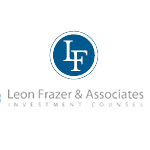 We all have a personal brand. Regardless of our professional role, personality type, range of interests or stage in life, each of us daily projects our unique persona to the world.
We all have a personal brand. Regardless of our professional role, personality type, range of interests or stage in life, each of us daily projects our unique persona to the world.
As technology accelerates and our personal imprint on the work process diminishes with each new advancement, we become more focused on what makes us unique and sets us apart from others, whether in our workplace, our neighbourhood, or our gathering places in the community where we interact and contribute in our own way.
I define a personal brand as “a consistent set of personal behaviours and values we exhibit to others that may draw them to us or discourage them from being around us – or somewhere in between.”
Personal branding has become a preoccupation for the majority of professionals seeking to move forward in their personal lives or careers by becoming the sort of person others gravitate to while retaining their ethical standards and remaining loyal to their beliefs.
Many of our best thinkers, writers, and speakers over centuries nurtured personal brands that to many were at first contrarian, offensive, and generally unpopular. Others projected immensely appealing and popular personae that authentically projected their values and goals and won them the unconditional support of millions of people. The late Mother Teresa (1910 -1997) and her work to fight world poverty comes to mind immediately.
More recently, Republican presidential candidate Donald Trump’s unmistakable personal branding strategies have sent his public awareness soaring but the long-term outcome of these efforts are yet to be seen.
To best develop your personal brand, you have to consider all aspects. Ask yourself:
- What sort of people do I relate to best in my personal and professional life?
- Am I confident in my abilities that allow me to achieve my goals readily and set new goals for my personal betterment and happiness?
- Am I hesitant to set major goals because I fear failure?
- Do I listen well or am I inclined to impose my views and ideas on others early in the conversation to take control and assert my authority?
- Do I tend to be overly diffident and readily embrace the opinions of others without question?
- Would I describe myself as empathetic?
- Do I give of my time to others as a volunteer, confidant, or close friend?
- Am I an introvert or extrovert (or like many of us, somewhere in between)?
- Do I pride myself on my appearance and take pains in selecting a wardrobe that I believe best reflects the occasion?
- Or, am I more concerned about focusing on less visual traits, such as what I say versus how I look?
- Do I follow through on promises or let them slide thinking that no one will notice or care that I have not made good?
- Do I enjoy group sports and activities or am I more comfortable pursuing individual sports and hobbies that don’t rely on others to ensure my success?
You will probably agree that the above ingredients (and there are many more) that constitute anyone’s personal brand are desirable, undesirable, and neutral. That’s the point. No one can honestly embrace all of the desirable and none of the undesirable characteristics listed above, although many of us spend our lives trying.
The essence of determining your personal brand and being content with it lies in understanding and accepting your qualities and challenges as a composite sketch of how you appear to yourself and to others. Chances are, you want an authentic personal brand that presents you in as positive a light to others while being true to yourself.
I like the phrase, “being comfortable in your skin.” To me, people in this category are best equipped to project an authentic and consistent personal brand. Some may gravitate to them while others may give them a wide birth.
The most enduring personal brands are consistent with our personalities and values and must be authentic to bring any permanent value to our lives.
While being a “chameleon” may serve us well in temporarily navigating constantly changing life and business situations, this can cause us to fail in our quest to live happily within a true personal brand. When we have an authentic, true personal brand we – and others – more fully accept who we are.
This article was originally posted on LinkedIn.
